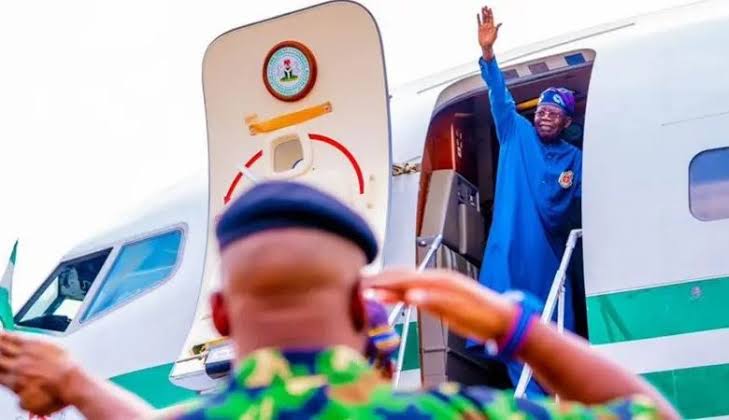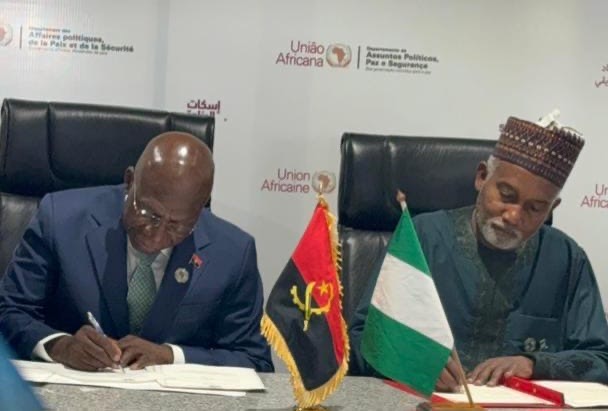President Bola Ahmed Tinubu is poised to embark on a significant state visit to China, reflecting his administration’s commitment to strengthening Nigeria’s diplomatic and economic ties with the Asian powerhouse. Scheduled for the first week of September 2024, this visit marks an important chapter in Nigeria-China relations, with Tinubu set to engage in high-level talks with Chinese President Xi Jinping and top business leaders. However, the backdrop of this diplomatic engagement is marred by a complex legal dispute involving the seizure of Nigerian assets by a Chinese firm, posing both challenges and opportunities for the Tinubu administration.
President Tinubu’s official visit to China, slated to begin on August 29, 2024, comes at a pivotal moment in Nigeria’s foreign policy. Accompanied by senior government officials, Tinubu’s itinerary will include a brief layover in the United Arab Emirates before proceeding to Beijing. The primary focus of this visit is to deepen economic cooperation between Nigeria and China, with meetings planned with President Xi Jinping and Chinese business leaders on the sidelines of the Forum on China-Africa Cooperation (FOCAC).
FOCAC serves as a vital platform for African nations to engage with China on economic, political, and social matters, and Tinubu’s presence signals Nigeria’s active participation in shaping the future of Africa-China relations. During his stay in China, Tinubu will not only meet with President Xi but also conduct site visits to major Chinese corporations, including Huawei Technologies and the China Rail and Construction Corporation (CRCC). These visits are strategically aligned with Tinubu’s agenda to secure investments that can drive Nigeria’s economic growth.
One of the key objectives of the trip is to facilitate the completion of the Ibadan to Abuja segment of the Lagos to Kano high-speed rail line, a critical infrastructure project that has been delayed for years. The rail line is expected to enhance connectivity across Nigeria, reduce travel times, and boost economic activities along its route. Tinubu’s engagement with CRCC aims to expedite the completion of this segment, reflecting his administration’s focus on infrastructure development as a cornerstone of economic progress.
A significant aspect of Tinubu’s visit will be his meetings with the chief executives of ten major Chinese corporations overseeing assets totaling over $3 trillion. These companies operate across diverse sectors, including oil and gas, aluminum production, seaport construction, and dredging services, all of which are critical to Nigeria’s economic landscape. Tinubu’s engagement with these industry leaders is expected to open doors for investment and technological collaboration, which could provide much-needed boosts to Nigeria’s industries.
Presidential spokesperson Ajuri Ngelale highlighted that these engagements are designed to yield immediate and future benefits for the Nigerian economy. The discussions will focus on areas such as information and communications technology, satellite technology development, financial services, and refining oil and gas. Tinubu’s strategic push aims to attract investments that will help diversify Nigeria’s economy, create jobs, and enhance the country’s technological capabilities.

Moreover, during his discussions with President Xi Jinping, Tinubu is expected to sign several Memoranda of Understanding (MoUs) aimed at deepening cooperation in various sectors. Key areas of focus include the green economy, agriculture, satellite technology, media enterprise development, and blue economic development. These agreements underscore a shared vision between Nigeria and China to collaborate on sustainable development initiatives that address critical global challenges.
As part of his visit, President Tinubu will participate in the 2024 FOCAC Summit in Beijing from September 4 to 6, where he will engage with other African leaders and Chinese officials on matters of mutual interest. In his capacity as the Chairman of the ECOWAS Authority of Heads of State and Government, Tinubu will deliver remarks on behalf of the West African region. His address is expected to highlight the importance of peace and security in fostering economic growth and stability across Africa.
Tinubu’s role at the FOCAC Summit is not just symbolic but also strategic, as he will lead high-level discussions on peace and security, focusing on how Africa and China can collaborate to address regional challenges. The summit will provide a platform for African leaders to explore ways to leverage China’s economic power to support infrastructure development, security, and technological advancement on the continent.
However, President Tinubu’s visit to China is shadowed by ongoing legal disputes involving the seizure of Nigerian assets by Zhongshan Fucheng Industrial Investment Co. Limited, a Chinese firm. This issue highlights the complexities of international legal matters that can strain diplomatic relations. A recent ruling by a French court granted the Chinese firm the right to seize three Nigerian presidential jets as security in a decades-long arbitration dispute involving the Ogun State government.
The court’s decision, which allows the seizure of the jets currently undergoing routine maintenance in France, reflects a significant challenge for the Tinubu administration. This legal tussle is not merely a bilateral issue between a state and a foreign company; it has broader implications for Nigeria’s international standing and raises concerns about the management of state assets abroad.
The dispute centers on claims by the Chinese company against the Ogun State government, which have persisted for years and resulted in costly arbitration proceedings. The seizure of Nigerian state assets as a result of this ruling has sparked debates about the need for better legal frameworks to protect national interests in international disputes. It also underscores the importance of having robust legal representation and diplomatic engagement to navigate such complex issues.
The timing of this asset seizure could complicate Tinubu’s diplomatic efforts in China, as it underscores potential risks in Nigeria’s business dealings with Chinese firms. While the legal dispute is separate from the official state visit, it inevitably forms part of the broader context of Nigeria-China relations. Tinubu’s administration must balance the pursuit of economic cooperation with the need to protect Nigeria’s sovereignty and assets in the international arena.
Addressing these challenges will require careful diplomacy and strategic negotiation to ensure that Nigeria’s interests are safeguarded while fostering a positive and collaborative relationship with China. As Tinubu engages with Chinese leaders, it will be crucial to demonstrate Nigeria’s commitment to resolving disputes amicably and enhancing legal protections for state assets.

Despite the complexities, Tinubu’s visit to China presents significant opportunities for Nigeria. The President’s engagements are expected to result in tangible outcomes, including new investments, technology transfers, and enhanced bilateral cooperation. Ajuri Ngelale, the Special Adviser to the President on Media and Publicity, emphasized that Tinubu’s participation in the FOCAC summit is designed to deliver concrete benefits, ensuring that the visit goes beyond mere discussions to produce actionable results.
The focus on infrastructure development, technological innovation, and economic diversification aligns with Tinubu’s broader vision for Nigeria’s growth. By fostering closer ties with Chinese corporations and leveraging China’s expertise in various sectors, Nigeria can make significant strides in addressing its development challenges. The completion of critical infrastructure projects, such as the high-speed rail line, will not only improve connectivity but also stimulate economic activities across the country.
Furthermore, the MoUs to be signed during the visit will lay the groundwork for sustained collaboration in key sectors. The emphasis on the green economy, agriculture, and technology reflects a forward-looking approach that seeks to position Nigeria as a leader in sustainable development. These agreements are expected to attract investments that will drive innovation, create jobs, and enhance Nigeria’s global competitiveness.
President Bola Tinubu’s upcoming visit to China is a multifaceted diplomatic mission aimed at strengthening bilateral ties, attracting investments, and addressing critical economic challenges. While the ongoing legal disputes involving the seizure of Nigerian assets pose significant challenges, they also highlight the need for robust legal and diplomatic strategies to protect national interests.
SOURCES
- https://saharareporters.com/2024/08/29/president-tinubu-embarks-another-foreign-trip-jets-out-china-thursday
- https://www.google.com/amp/s/pmnewsnigeria.com/2024/08/27/nigerian-presidency-unveils-agenda-for-tinubus-state-visit-to-china/%3famp=1
- https://www.google.com/amp/s/www.channelstv.com/2024/08/29/tinubu-departs-for-china-on-official-visit/amp/




